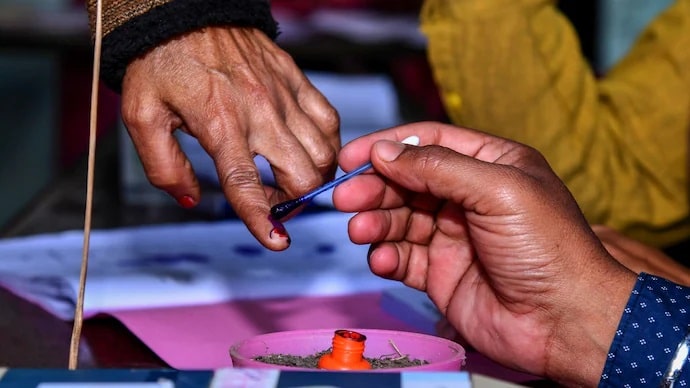Voting Meaning
Voting is the most important moment in any situation involving decision-making on a subject. Through it, participating individuals express their choice and assume respect for the option with the greatest number of supporters. Normally, the act of voting is directly related to democratic political systems in which almost entire populations (with the exception of children and foreigners) decide on various aspects of community life.
There are numerous methods through which a vote or suffrage can be exercised and the choice of voting system will have to do with the specific objective for which the vote is being cast. That is, while there are times when voting can be carried out informally (such as a consortium assembly ), other situations imply a much greater order and organization (for example, when we talk about national elections to elect governors). In this sense, voting can be public or private, secret or by voting, individual or group, qualified or massive, obligatory or optional, etc. All of these possibilities are adapted to different situations.
Of course, the individual, secret, and compulsory vote is directly related to democracy and the sovereign exercise of our preferences. If it is understood in this way, then it can be said that voting is a very recent phenomenon since historically societies have been politically managed through hereditary successions or based on divine designs of their rulers. It was not until the beginning of the 19th century that the notion of electing political leaders through voting began to take shape. In the case of women, the right to vote did not become possible until the end of the 19th century and the beginning of the 20th century, and there are still populations in which women do not have the possibility of voting. Today, in addition, numerous groups with anarchist inclinations and disbelievers in the democratic system, call on citizens not to vote in order to not allow rulers to perpetuate themselves in power, maintaining the conditions of inequality, poverty, misery, and hopelessness in some countries.
In order for voting to be carried out in democratic systems, a medium- to long-term process must be carried out that involves the appropriate registration of individuals who will be eligible to vote, the establishment of the options to be chosen, the organization and regulation of the spaces where voting will take place, the distribution of the ballot boxes and materials necessary to carry out the vote, the vote itself and the subsequent addition of the votes cast with the consequent proclamation of the winning option.
Voting Meaning in Hindi
किसी भी विषय पर निर्णय लेने की स्थिति में मतदान सबसे महत्वपूर्ण क्षण होता है। इसके माध्यम से, भाग लेने वाले व्यक्ति अपनी पसंद व्यक्त करते हैं और सबसे अधिक समर्थकों वाले विकल्प के प्रति सम्मान व्यक्त करते हैं। आम तौर पर, मतदान का कार्य सीधे लोकतांत्रिक राजनीतिक प्रणालियों से संबंधित होता है जिसमें लगभग पूरी आबादी (बच्चों और विदेशियों को छोड़कर) सामुदायिक जीवन के विभिन्न पहलुओं पर निर्णय लेती है।
ऐसे कई तरीके हैं जिनके माध्यम से वोट या मताधिकार का प्रयोग किया जा सकता है और मतदान प्रणाली का चुनाव उस विशिष्ट उद्देश्य से संबंधित होगा जिसके लिए वोट डाला जा रहा है। यानी, जबकि ऐसे समय होते हैं जब मतदान अनौपचारिक रूप से किया जा सकता है (जैसे कि एक संघ सभा), अन्य स्थितियों में बहुत अधिक व्यवस्था और संगठन की आवश्यकता होती है (उदाहरण के लिए, जब हम राज्यपालों के चुनाव के लिए राष्ट्रीय चुनावों की बात करते हैं)। इस अर्थ में, मतदान सार्वजनिक या निजी, गुप्त या मतदान द्वारा, व्यक्तिगत या समूह, योग्य या सामूहिक, अनिवार्य या वैकल्पिक आदि हो सकता है। ये सभी संभावनाएँ विभिन्न स्थितियों के अनुकूल होती हैं।
बेशक, व्यक्तिगत, गुप्त और अनिवार्य मतदान सीधे लोकतंत्र और हमारी प्राथमिकताओं के संप्रभु प्रयोग से संबंधित है। अगर इसे इस तरह से समझा जाए तो यह कहा जा सकता है कि मतदान एक बहुत ही हालिया घटना है क्योंकि ऐतिहासिक रूप से समाजों को वंशानुगत उत्तराधिकार या उनके शासकों की दैवीय योजनाओं के आधार पर राजनीतिक रूप से प्रबंधित किया गया है। 19वीं शताब्दी की शुरुआत तक मतदान के माध्यम से राजनीतिक नेताओं को चुनने की धारणा आकार लेने लगी थी। महिलाओं के मामले में, मतदान का अधिकार 19वीं शताब्दी के अंत और 20वीं शताब्दी की शुरुआत तक संभव नहीं हुआ था, और अभी भी ऐसी आबादी है जिसमें महिलाओं को मतदान करने की संभावना नहीं है। इसके अलावा, आज अराजकतावादी झुकाव वाले और लोकतांत्रिक व्यवस्था में अविश्वास रखने वाले कई समूह नागरिकों से मतदान न करने का आह्वान करते हैं ताकि शासकों को सत्ता में बने रहने की अनुमति न मिले, जिससे कुछ देशों में असमानता, गरीबी, दुख और निराशा की स्थिति बनी रहे। लोकतांत्रिक प्रणालियों में मतदान के लिए, एक मध्यम से दीर्घकालिक प्रक्रिया का पालन किया जाना चाहिए, जिसमें मतदान के लिए पात्र व्यक्तियों का उचित पंजीकरण, चुने जाने वाले विकल्पों की स्थापना, मतदान के लिए स्थानों का संगठन और विनियमन, मतदान के लिए आवश्यक मतपेटियों और सामग्रियों का वितरण, मतदान और उसके बाद डाले गए मतों को जोड़ना तथा विजयी विकल्प की घोषणा करना शामिल है।
